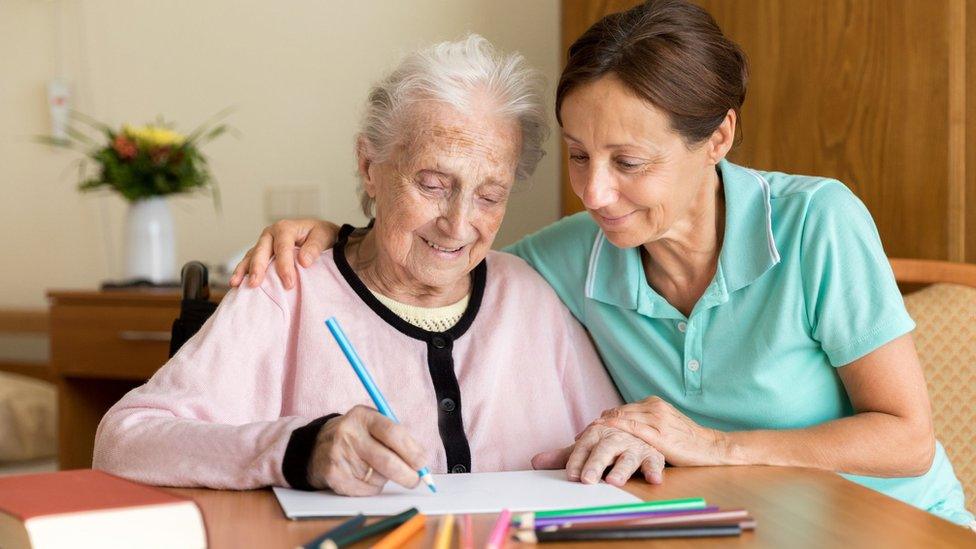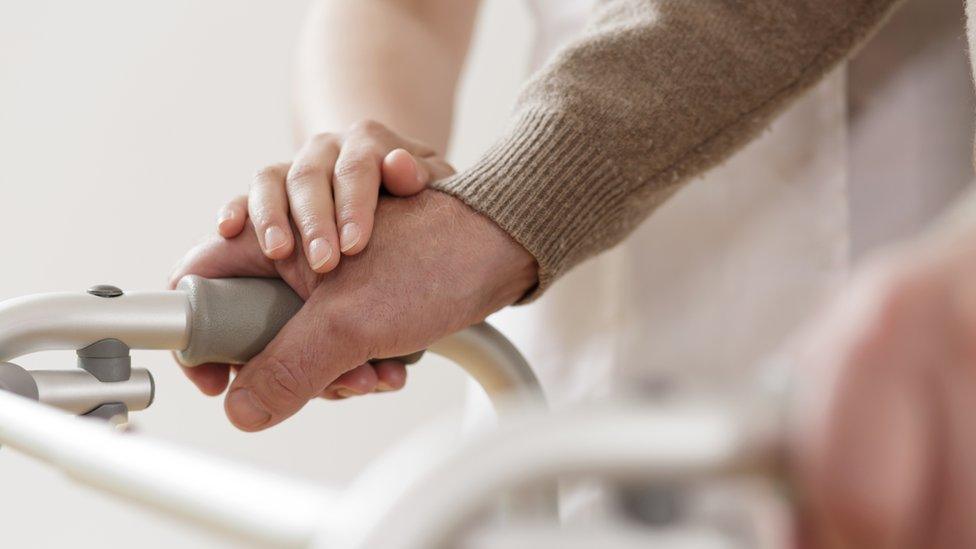NHS pledges elderly rapid response community teams
- Published

Rapid response teams of nurses, physios and care staff are to be on hand within two hours to help sick older people at home in England under new plans.
The community crisis teams will be officially piloted in seven areas this year, with the plan to roll out the model across the country by 2023.
Several places have already introduced similar teams and reduced A&E demand.
But unions warned staff shortages would be a major obstacle to the plan put forward by NHS England and ministers.
There is also concern that council social care teams that will form a vital part of these new teams have still yet to hear what plans are being put in place to reform care funding.
Ministers have been promising an overhaul of the system for years, but proposals keep getting shelved.
Christina McAnea, of Unison, said: "If the social care system wasn't underfunded to the point of collapse, older people could be helped before they hit crisis point.
"But with resources scarce, short visits have become the norm.
"Care workers are so rushed off their feet, they barely have time to administer basic care, let alone assess whether someone needs a greater degree of help."
Royal College of Nursing chief executive Donna Kinnair said there simply was not enough nurses, pointing out the number working in the community was falling.
The new plan
Some £14m will be set aside to test the rapid response teams.
They will be trialled in:
Warrington
West Yorkshire
Leicestershire
Cornwall
Buckinghamshire, Oxfordshire and Berkshire
South East London
Norfolk and Suffolk
As well as guaranteeing rapid responses to crises, such as falls and minor infections, the aim is also to guarantee care packages within two days for hospital patients who are ready to be discharged from hospital.
Around one in 20 hospital beds is regularly taken by older patients medically fit to be released, but who have to be kept in because there is no community care available.
NHS chief executive Simon Stevens said: "The NHS working hand-in-glove in the community with council-funded social care services can be the difference between an older person, or someone with long-term health needs, spending a week or a month on a ward and not needing to go in, in the first place."
- Published22 January 2020

- Published22 January 2020
